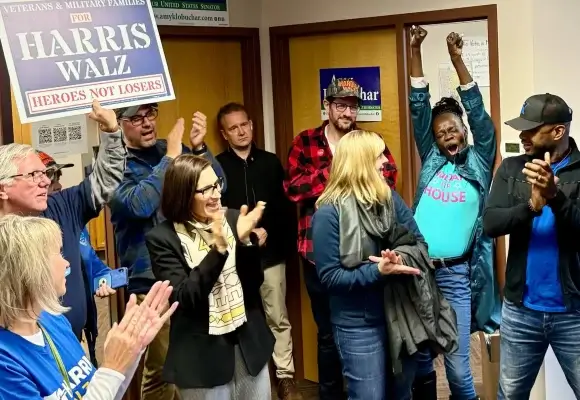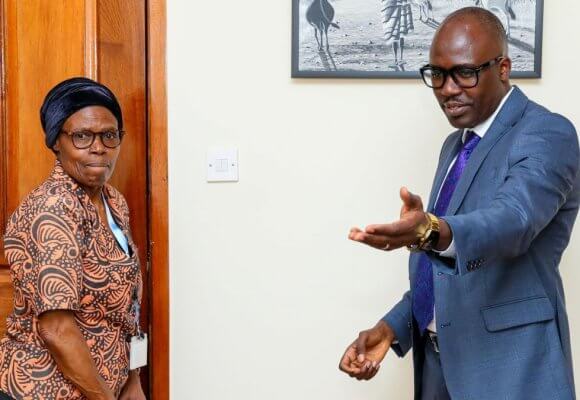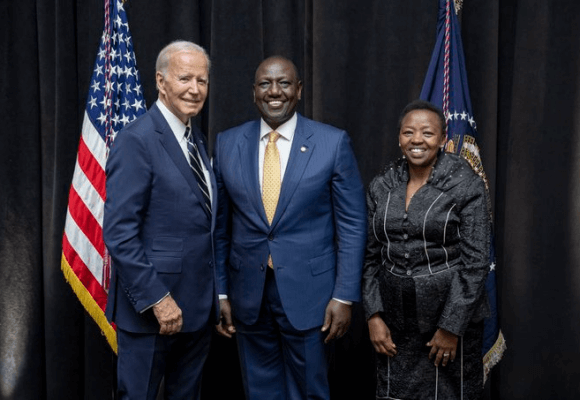|
LISTEN TO THIS THE AFRICANA VOICE ARTICLE NOW
Getting your Trinity Audio player ready...
|
Swahili Village, a celebrated upscale Kenyan-owned restaurant in Washington, D.C., is now facing a lawsuit from the District of Columbia Attorney General for rampant wage theft and illegal business practices.
The lawsuit filed by DC AG, Brian Schwalb on Wednesday 23rd August alleges that the restaurant has been systematically stealing wages from its employees, many of whom are low-wage workers, for years.
The lawsuit comes at a time when Swahili Village, which also refers to itself as ‘The Consulate’, is struggling financially. The restaurant was forced to close for several months during the COVID-19 pandemic, and it has yet to fully recover. In an attempt to cut costs, the restaurant has reportedly slashed wages and benefits for its employees.
The lawsuit alleges that Swahili Village and its executive officers, Kevin Onyona and Emad Shoeb, have been stealing wages and tips from their employees since the restaurant opened in 2020. The lawsuit also alleges that Swahili Village has failed to keep accurate records of its employees’ hours worked, failed to provide paid sick leave, and reprimanded employees for missing work days.
“We are suing DC restaurant Swahili Village and its executives for systematically stealing wages and tips from servers, hosts, runners, bussers, and bartenders. My office is committed to enforcing the District’s wage and labour laws and standing up for DC workers,” said AG Schwalb.
The lawsuit specifically alleges that Swahili Village paid its employees $5 per hour, even though the District of Columbia’s minimum wage is $14 per hour. In addition, the suit alleges that the restaurant failed to pay its employees overtime wages for hours worked over 40 hours per week and also denied its employees with paid sick leave. Further, the suit states that Swahili Village restaurant did not keep accurate records of its employees’ hours worked.
“Our investigation indicates that Swahili Village DC and its executives, Kevin Onyona and Emad Shoeb, persistently and systematically failed to pay hundreds of hard-working restaurant workers the wages, tips, and benefits they were legally entitled to receive, violating the basic wage, overtime, sick leave, and record-keeping rules that all District employers are required to follow,” the AG further stated.
The Attorney General’s Office is seeking back wages for Swahili Village’s employees, as well as statutory penalties.
Kevin Onyona, the owner of the popular restaurant, has been battered by the waves of fate. The COVID-19 pandemic was the biggest blow, but even before that, he was struggling to stay afloat against the big chains. And then, in the early days of his business, a fire destroyed his restaurant. Now, he faces the possibility of having to close his doors for good.
However, the D.C. Attorney General’s Office is alleging that Swahili Village’s financial difficulties are no excuse for wage theft. The lawsuit states that “unlike the vast majority of law-ab iding restaurants and businesses in the District that sought to weather these challenges through lawful means, Swahili Village DC instead responded by foisting its costs onto already-struggling workers through stolen wages.”
A keener look at “The Consulate’s” recent past shows a determined business that has struggled to break even amidst financial woes. Kevin Onyona and his wife, Lynn Onyona, had big dreams for their restaurant. They had invested $1.3 million in the business and hired 65 employees in preparation for the grand opening in March 2020.
According to Kevin’s bio on the Swahili Village website, Kevin, an award-winning businessman built “The Consulate” to provide an “authentic connection between the African culture and the rest of the world.” He said “The African culture is very misinterpreted globally and it is time we stood up and displayed the authenticity of our originality in culture, food, arts and music.”
But their dreams were quickly dashed by the COVID-19 pandemic.
The pandemic forced businesses across the globe to close their doors, and the Onyonas’ restaurant was no exception. Customers stopped coming, and the targeted clients who worked in offices began working from home. On March 16, 2020, the administration of the District of Columbia ordered the entire food and beverage industry to close, and the Swahili Village was no exception.
To make matters worse, the restaurant did not qualify for a small business loan under the Coronavirus Aid, Relief, and Economic Security (CARES) Act. This was because the business was not in operation in DC before February 15, 2020, a requirement of the stimulus legislation.
The Onyonas were devastated. They had worked so hard to build their business, and now it was all gone. They were down, but not out. Kevin’s never say die spirit was at play and he was not willing to come this far to give up on his dream.
Kevin Onyona, describes himself on Linkedin as an entrepreneur whose “business acumen has been developed through a strict upbringing,… driven by a mentality of leadership based on servitude, able to overcome business challenges and succeed in high-profile executive roles.”
When plans were put in place to contain the spread of the pandemic, and to allow life to somehow continue, the Onyonas reopened their restaurant in June the same year, armed with masks, vaccines in their bodies, and a truck-load of optimism, hoping against hope to succeed.
However, things were still bad on their side. The future was bleak. The city crowds were gone, and their restaurant was like a ghosted place.
“Unless we get that really strong indoor dining, we were not built for just takeout. That restaurant is a fine-dining space where people come to enjoy the experience, the food, the music, the culture,” Onyona says. “If this continues for another three or four months, I don’t think we’ll make it,” he was quoted by the Washingtonian as saying in September that year.
The restaurant was weathering a fatal attack, just two years after suffering a fire accident that left a financial hole in its operations. “Early morning hours today, Monday, May 7, 2018 there was a fire outbreak @Swahili Village Bar and Grill Beltsville, Maryland. Due to the damage to the interior of the restaurant, Swahili Village will be closed until further notice,” the restaurant wrote on X (Twitter) account.
It remains to be seen if The Consulate in downtown DC will pull through its struggles and rise above to be a place that “brings people together through food, culture, art, and enlightened conversation.”














































LEAVE A COMMENT
You must be logged in to post a comment.